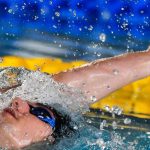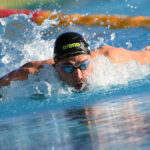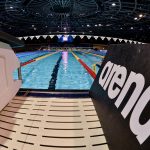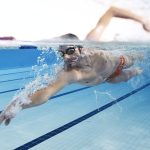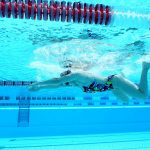Recognise the signs of overtraining!
Sports science teaches us that high training loads are linked with a greater risk of physical and mental exhaustion.
Research*exploring how injuries, illnesses, stress, overtraining and exhaustion are all related have shown that injuries and illnesses are closely tied to increases in training loads. But surprisingly there is an even closer link between illnesses/injuries and psychological stress.
How do you recognise the symptoms of overtraining?
1. Change in resting heart rate. This is the result of a rise in your metabolic rate to meet the demands imposed by your training load. Get in the habit of checking it first thing in the morning after you wake up to monitor your physical fitness and fatigue.
2. Sore muscles. It is normal to have muscular pain for one or two days after an intense training session. However, if you are still in pain after 72 hours, make sure you take a few days’ rest.
3. Insomnia. This is probably the result of a combination of overloading both the nervous system and hormonal system. Rest is a key part of training, so do not underestimate it.
4. Mood swings. If you start feeling more aggressive, irritable or depressed, it could be the result of overtraining. Listen to your body and take appropriate action.
5. More frequent injuries. When you are overtraining your body does not have enough time to recover between one training session and the next. This leads to muscular weakness increasing the risk of injuries. To avoid overtraining syndrome, we suggest you take some time off to rest and also reduce the intensity of your training sessions.
Once you have recognised the symptoms of overtraining, it is time to work out a proper recovery plan. When doing this, keep a few important factors in mind:
- Plan your work loads and recovery sessions properly;
- Withdraw from races and skip training sessions when you are ill or injured;
- Monitor your general physical fitness and mental state.
Now decide the best way to recover. Bear in mind the following key factors:
- Light aerobic work to eliminate any metabolic waste;
- Muscle stretching to get rid of any motor imbalances;
- Recovery massages to restore the right muscle tone;
- Replacing liquids lost during training and essential nutrients for replenishing energy stores.
Last but not least, remember: do not push your body beyond its limits, learn how to listen to it. Find the right balance between training and rest. This is the key to successful training sessions!
Bibliographical References
1. Angeli A, Minetto M, Dovio A, et al. The overtraining syndrome in athletes: a stress-related disorder. J Endocrinol Invest. 2004;27:603-612
2. Armstrong LE, VanHeest JL. The unknown mechanism of the overtraining syndrome: clues from depression and psychoneuroimmunology. Sports Med. 2002;32:185-209
3. Budgett R. Fatigue and underperformance in athletes: the overtraining syndrome. Br J Sports Med. 1998;32:107-110
4. Budgett R, Newsholme E, Lehmann M, et al. Redefining the overtraining syndrome as the unexplained underperformance syndrome. Br J Sports Med. 2000;34:67-68
5. Costill DL, Flynn MG, Kirwan JP, et al. Effects of repeated days of intensified training on muscle glycogen and swimming performance. Med Sci Sports Exerc. 1988;20:249-254
6. Fry RW, Grove JR, Morton AR, et al. Psychological and immunological correlates of acute overtraining.Br J Sports Med. 1994;28(4):241-246
7. Fry RW, Morton AR, Keast D. Overtraining in athletes: an update. Sports Med. 1991;12(1):32-65
Are you looking for the ideal training swimsuit for your own specific needs? Take a look here!
Written by:
arena coaches
Swim coaches, trainers and experts will give you all kinds of tips for performing at your best in both training and races.
